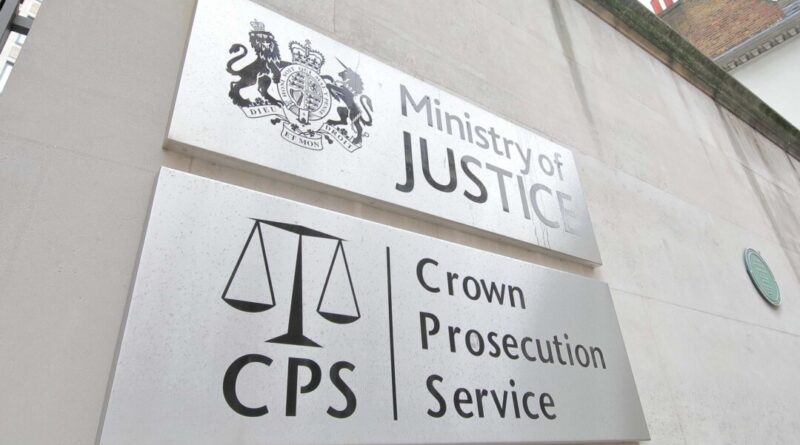CPS Leader Commits to Improving Support for Crime Victims Despite Delays in Justice
New measures are aimed at providing clarity on the legal process and addressing the concerns of victims.
A set of initiatives introduced by the Crown Prosecution Service (CPS) will improve support for victims of rape and serious sexual offenses, as well as tackle delays in the criminal justice system, as stated by a top prosecutor.
Director of Public Prosecutions Stephen Parkinson has committed to revamping the system to offer more assistance to victims who often disengage from their cases due to prolonged delays.
“I acknowledge the distress that individuals awaiting criminal proceedings experience – it can hinder healing and harm relationships. Consistent, clear communication is essential to help victims navigate the process and aid in achieving justice,” he declared in a statement released on Thursday.
Recognizing that the CPS has not been effective in this regard, especially given the surge in criminal court backlogs, Parkinson noted that delays have resulted in some victims waiting up to three years for trials to commence.
The present backlog stands at 82,000 cases, which is 85 percent higher than pre-COVID-19 levels. The CPS foresees a further 10 percent increase in workload next year. Consequently, the CPS is striving to boost the number of prosecutions for rape and sexual assault cases.
Adult victims are now being offered pre-trial meetings with the CPS to provide clarity and support throughout the legal process.
A designated Victim Liaison Officer (VLO) will serve as a single point of contact for victims to address any queries they may have. The CPS has recruited over 40 VLOs and trained more than 550 staff members who will be interacting with victims.
Katie Kempen, CEO of Victim Support charity, emphasized that the effectiveness of the VLO role hinges on its integration into an existing complex system.
According to the CPS, a court case involving sexual abuse by a family member in the 1980s was brought to court in 2020. However, due to scheduling issues, the case had to be postponed twice, with a VLO having to ensure the victim remained engaged.
“Most individuals may not have a thorough understanding of the justice process, which can be overwhelming. The victim found solace in knowing that efforts were being made behind the scenes, and having a CPS contact person to talk to made a significant difference,” the VLO shared.
Pilot Programs
In certain regions, victims will receive direct communication from the CPS via phone calls, emails, or letters explaining charging decisions and outlining the subsequent steps.
This measure seeks to elucidate the legal process for victims and educate them on their rights under the Victims’ Code.
As part of revised communication protocols, victim correspondence will refrain from including the defendant’s name at the beginning of letters to prevent re-traumatization.
The CPS also committed to collaborating with the police and Independent Sexual Violence Advisers to organize drop-in sessions for victim support.
Charlotte Caulton-Scott, head of a rape and serious sexual offenses unit in CPS East Midlands, stressed the significance of providing support to victims, stating that these new measures offer reassurance and a personalized touch.
Minister for Victims Alex Davies-Jones applauded the CPS initiatives, underscoring their role in combating the “unacceptable victim attrition rate.”
“It requires immense courage for victims to come forward, and they deserve unwavering support throughout their journey,” Davies-Jones remarked.
Falling Short
During a session with the Commons Justice Committee, Parkinson revealed that the CPS is falling short of its targets for delivering charging decisions, particularly in three hours for suspects in custody (red cases) and within 28 days for suspects on bail (green cases).
Presently, the CPS meets these targets in 67.3 percent of red cases and 61.6 percent of green cases.
Parkinson proposed exploring financial incentives for defense lawyers to encourage early guilty pleas, which could alleviate delays in the justice system.
He highlighted that only about 40 percent of Crown Court trials commence as scheduled, with the remaining disrupted by cracked or ineffective trials. Reasons for ineffective trials include courtroom availability, legal representation, or issues with victims and witnesses testifying as planned.
Parkinson warned that systemic issues in the justice process are exacerbating and emphasized the need for change to prevent further deterioration.
PA Media contributed to this report.





